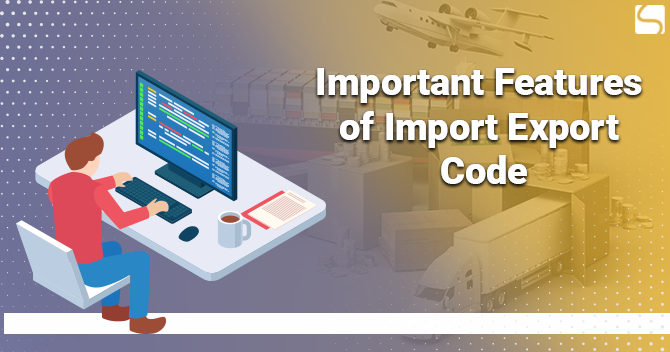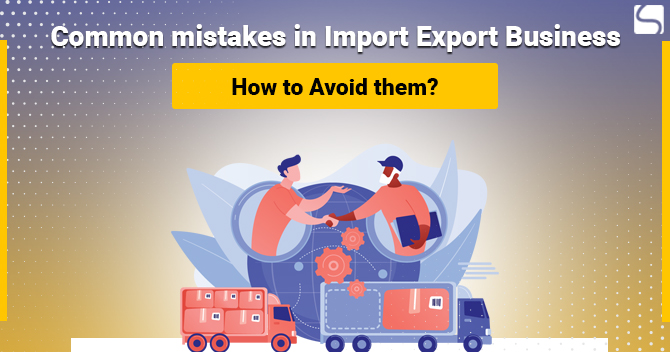Export Rice From India: Concept and Licenses Required
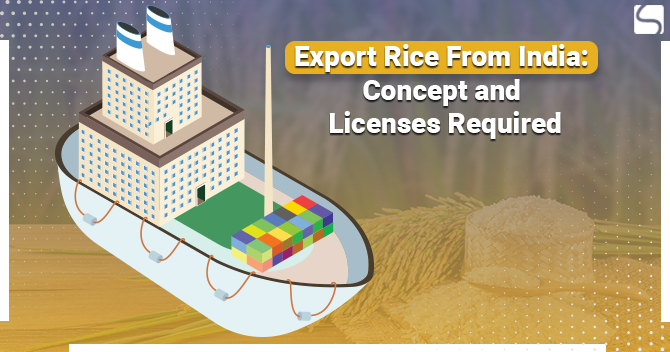
Shivani Jain | Updated: Jan 07, 2021 | Category: Business, IEC
In India, agriculture acts as one of the main occupations. About 58% of the total population depends upon this to earn their source of living. Therefore, it is one of the major pillars of our Indian economy. Further, if we go in detail, rice is one of the most significant food crops in India that feeds around 50% of the world’s population. Moreover, it shall be relevant to state that whoever Export Rice from India plays a vital role in the economy.
In this blog, we will discuss the concept and licenses required to export rice from India.
Table of Contents
Reasons To Export Rice From India
India is popular for farming rice all over the world, and over the years the demand for rice from other countries have increased considerably as well. Thus, starting a rice export business in India will definitely turn out to be profitable yet feasible for embryonic entrepreneurs.
Further, the reasons to start a business for exporting rice from India are as follows:
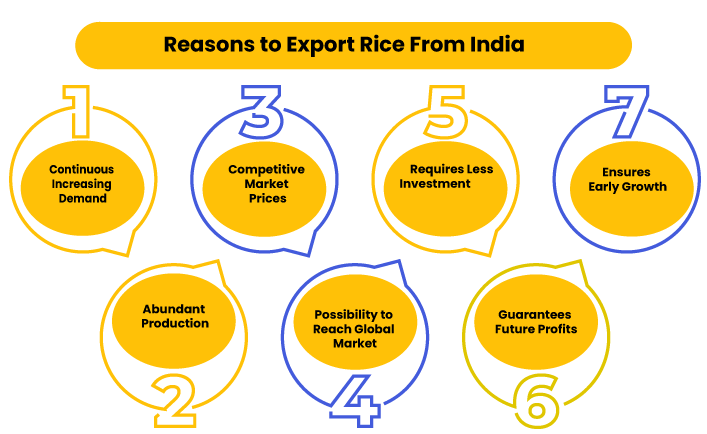
- Continuous Increasing Demand;
- Abundant Production;
- Competitive Market Prices;
- Possibility to Reach Global Market;
- Requires Less Investment;
- Guarantees Future Profits;
- Ensures Early Growth;
Growth Of Rice Export From India
The growth of Rice Export in recent years can be summarised:
- As per a report published by STATISTA, on 16.10.2020, Basmati Rice[1] of value over the US $4.3 billion was exported from India in the financial year 2020. Further, the other rice varieties amounted to about US $2 billion of the total export value for that same year.
- Based on an article published by Economic Times, on 07.10.2020, the total value of the Export Rice from India can increase by 42%, i.e., 14 million tones, in the current financial year due to the reason as follows:
- Reduced Shipments from Rival Exporters;
- Depreciating Value of Rupee;
- Drought in Thailand (one of the largest exporter of rice in the world);
- Low Water Levels in Vietnam (third exporter of rice in the world);
- In accordance with the news published by CNBC TV18, on 17.12.2020, India had exported 2.8 million tons Basmati Rice and 6.1 million tons Non-Basmati Rice to China during the period of April to October;
- As per a report published by Research and Markets, named “India Rice Market Outlook 2025”, in the month of Jan 2020, the overall Indian Rice sector is expected to grow at 6% CAGR (Compound Annual Growth Rate) in the future years;
Major Players Of Rice Sector
The major players who deal in the export of rice from India are as follows:
- KRBL Private Limited;
- LT Food Pvt Ltd;
- Kohinoor Foods;
- Amir Chand Jagdish Kumar (Export) Ltd;
- Sarveshwar Food;
- Misthann Foods Limited;
- Adani Wilmar Limited;
- Amira Pure Foods Limited;
- Dunar Foods;
Major ImportersOf Indian Rice
The major importers of the India rice variety are as follows:
Basmati Rice
As per a report published by the AgriXchange, APEDA, the top 20 importers of Basmati Rice in the year 2019 are as follows:
|
S.no |
Country |
Total Quantity |
Total Value |
|
1. |
Iran |
1319154.92 |
884636.07 |
|
2. |
Saudi Arab |
974125.09 |
678807.04 |
|
3. |
Iraq |
465890.33 |
307805.67 |
|
4. |
U Arab Emirates |
208519.39 |
148699.97 |
|
5. |
Kuwait |
197103.99 |
142636.90 |
|
6. |
Yemen Republic |
203330.36 |
138851.09 |
|
7. |
U S A |
148391.25 |
128497.24 |
|
8. |
U K |
115712.56 |
73634.91 |
|
9. |
Oman |
74353.99 |
53874.15 |
|
10. |
Jordan |
65975.22 |
47517.46 |
|
11. |
Qatar |
62126.43 |
45884.19 |
|
12. |
Canada |
53174.68 |
43466.09 |
|
13. |
Australia |
42866.26 |
36800.20 |
|
14. |
Netherland |
50246.35 |
31979.81 |
|
15. |
Israel |
40963.45 |
30497.06 |
|
16. |
Malaysia |
33364.53 |
24422.52 |
|
17. |
Turkey |
37839.46 |
23608.70 |
|
18. |
Bahrain Is |
32201.73 |
23025.83 |
|
19. |
Mauritius |
27831.08 |
21698.30 |
|
20. |
Egypt |
21920. 05 |
14856. 25 |
Non Basmati Rice
As per a report published by the AgriXchange, APEDA, the top 20 importers of Non Basmati Rice in the year 2019 are as follows:
|
S.no |
Country |
Total Quantity |
Total Value |
| 1. |
Saudi Arabia |
1403914.00 |
1415.00 |
| 2. |
China |
2503685.00 |
1254.00 |
| 3. |
Philippines |
3121817.00 |
1145.00 |
| 4. |
U S A |
962439.00 |
1086.00 |
| 5. |
Cote D Ivo ire |
1342109.00 |
604.00 |
| 6. |
Benin |
1523569.00 |
570.00 |
| 7. |
France |
595059.00 |
541.00 |
| 8. |
United Arab Emirates |
677631.00 |
535.00 |
| 9. |
U K |
671597.00 |
531.00 |
| 10. |
Japan |
485132.00 |
490.00 |
| 11. |
Malaysia |
969392.00 |
453.00 |
| 12. |
South Africa |
967691.00 |
449.00 |
|
13. |
Canada |
5157.00 |
413.00 |
|
14. |
Germany |
413075.00 |
386.00 |
|
15. |
Ghana |
1087124.00 |
375.00 |
|
16. |
Senegal |
892451.00 |
339.00 |
|
17. |
Belgium |
526562.00 |
313.00 |
|
18. |
Hong Kong |
316946.00 |
298.00 |
|
19. |
EGYPT |
185788.00 |
293.00 |
|
20. |
Netherlands |
362625.00 |
278.00 |
Also, Read: Steps to Take your Business to the International Market with Import Export Code
Factors To Consider For Exporting Rice From India
The factors to consider for exporting rice from India are as follows:
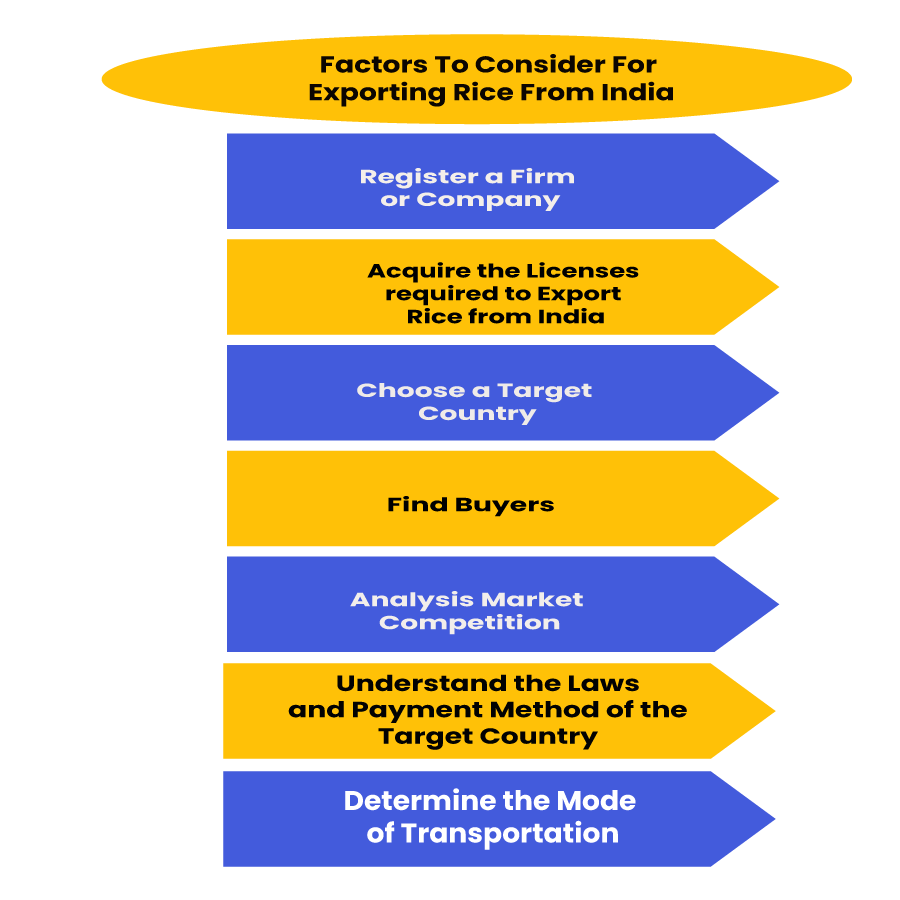
- Register a Firm or Company;
- Acquire the Licenses required to Export Rice from India;
- Choose a Target Country;
- Find Buyers;
- Analysis Market Competition;
- Understand the Laws and Payment Method of the Target Country;
- Determine the Mode of Transportation;
Documents Required To Export Rice From India
The documents required to export rice from India are as follows:
- Certificate of Registration;
- PAN Card;
- Identity Proof, in the form of Aadhar Card, Driving License, Voter ID, etc.;
- Address Proof of the Registered Office, in the form of Utility Bills and Sale Deed or Rent Agreement;
- A copy of Memorandum of Association;
- A copy of Articles of Association;
- In the case of Limited Liability Partnership, a copy of LLP Agreement;
- In the case of Partnership Firm, a copy of Partnership Deed;
- FSSAI License;
- Certificate of GST Registration;
- Import Export Code;
- Certificate of GST Registration;
Licensees Required To Export Rice From India
The licenses required to Export Rice from India are as follows:

Company Registration
To start a business that deals in exporting rice from India, one of the main and prime requirement is to incorporate a company under the provisions of the Companies Act 2013. Further, the term company includes both Private Limited Company Registration and Public Limited Company.
However, a format that is the best for starting a business that export rice from India is Limited Liability Partnership, as it provides the privileges of both Private Limited Company and Partnership Firm.
Import Export Code
Another most important license required to export rice from India is Import Export Code. An applicant can obtain IEC Registration online by filing an online application on the official DGFT portal. Also, it shall be significant to note that without a valid IEC, a person or company cannot export rice from India.
APEDA Registration
It shall be significant to note that, every applicant who wants to export rice from India or wants to deal in schedule products needs to mandatorily acquire APEDA registration from the prescribed authorities. Further, the term schedule products include the following:
- Floriculture & Floriculture Products;
- Meat & Meat Products;
- Honey, Jaggery & Sugar Products;
- Poultry & Poultry Products;
- Dairy Products;
- Fruits, Vegetables & their Products;
- Cocoa & its Products;
- Confectionery, Biscuits & Bakery Products;
- Groundnuts, Peanuts & Walnuts;
- Cereal & Cereal Products;
- Alcoholic & Non Alcoholic Beverages;
- Pickles, Papads & Chutneys;
- Herbal & Medicinal Plants;
- Guar Gum;
Further, to acquire APEDA Registration, it is necessary for every applicant to submit a web-based form within a period of one month, starting from the date of undertaking the exporting business. However, if in case the exporter fails to do so within the given time frame due to a reasonable cause, then, in that case, the concerned authorities can extend the said date.
FSSAI License
Every individual or a company that wants to start anything related to food must obtain an FSSAI License from the Food Safety and Standards Authority of India. That means if an individual wants to export rice from India, then, he/she must apply for Online FSSAI Registration in India.
ISO Certification
The term ISO certification specifies that every company that deals in the production or supply of food or related items needs to assure the quality of the same. Therefore, there is a need to apply for ISO Certification in India.
GST Registration
As per the provisions of the GST Act, it is compulsory for every IEC holder to acquire GST Registration in India, irrespective of its aggregate annual turnover.
Conclusion
In a nutshell, the efforts made by the government to promote and encourage foreign trade by way of various schemes and subsidies are paying off now. That means the food sector can now step forward to explore the unmapped and new market that holds huge possibility both in terms of revenue generation and customer base.
However, it shall be pertinent to mention that starting an export business in India is subject to several legal and intricate compliances, for which the applicant requires professional assistance. At Swarit Advisors, our proficient experts of various fields and domains will not only provide the top-notch advice but will assist in the process of acquiring registrations and licenses as well.
Also, Read: All That You Need To Know: When IEC Code is Required?












